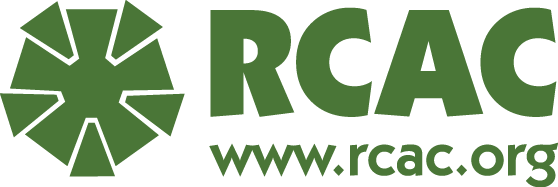Before You Sign on the Dotted Line: Pre-Design Treatment Considerations (California) 080724-2
Event Date & Time
8/7/2024 2:00 PM - 8/7/2024 4:00 PMLocation
ONLINE
Times listed are Pacific Time
Before You Sign on the Dotted Line: Pre-Design Treatment Considerations
Accreditation:
2 California Drinking Water Contact Hours awarded
Contact hours have been approved for the Registered Environmental Health Specialist Program
Certificates will be available through your profile.
Date & Time:
The Before You Sign on the Dotted Line: Pre-Design Treatment Considerations training will be held on the following date and time:
August 7 | 2:00PM-4:00PM
This training is being held in Pacific Time.
Description:
Most very small water systems just pump groundwater. Maybe they add a bit of chlorine before sending it to the distribution system. They have neither knowledge nor experience with water treatment systems. What happens then when the laboratory calls and informs you that you have contaminants in your source at concentrations exceeding the drinking water standards? How do you determine what the “best” water treatment is for your system?
The objective of this training is to guide small water systems through the process of choosing the most appropriate choice of water treatment. The goal is to provide the questions to ask and basic knowledge about the most common water treatment technologies so that the utility can make knowledgeable and informed decisions about what will most likely be the largest purchase the system will ever make.
Because very small water systems are not generally up-to-speed on the groundwater treatment technologies, we will begin with an overview of the most common treatment systems, including:
· Granular activated carbon (GAC) filtration
· Proprietary adsorptive media filtration
· Single pass ion exchange media filtration
· Onsite regenerated ion exchange media
· Coagulation/filtration processes
In addition, we will explore how each of these treatment techniques is best applied to the removal of specific groundwater contaminants. Of course, as with any modification of treatment to your system, maintaining good communications with your DDW or LPA regulator is critical to a successful project.
Participants will learn:
· Common water treatment technologies for small water systems
· How different treatment techniques remove specific groundwater contaminants
· The most appropriate water treatment choice for your system
· The importance of maintaining communications with regulators during treatment projects
· Essential questions to ask when selecting a water treatment system
This training will be beneficial to all small water system operators and mangers.
Location:
This training will be hosted online on GoToTraining.
Scholarship & Fees:
Before You Sign on the Dotted Line: Pre-Design Treatment Considerations a free training to attend.
Registration:
To receive contact hours for online workshops, each person must be registered with their own email address. An evaluation at the end of the training is also required.
Are you attending as a group, but not watching from your own computer?
Attendees do not need to participate from their own computer/device for the online trainings. Each attendee will be required to register and complete an evaluation to verify their participation. Prior to session start, a Group Leader will need to inform RCAC (registration@rcac.org) which attendees will view the sessions together. Following the training an evaluation is sent to the Group Lead who will be responsible for sharing it with each attendee in the group.
For registration questions, contact:
RCAC
Events
registration@rcac.org
(916)
447-9832 ext. 1429
By registering for an RCAC event, you acknowledge and agree to abide by the code of conduct set forth by RCAC for training participants, which is available here. RCAC Training Code of Conduct. Please read the code of conduct carefully before proceeding with the registration process.
Funding for this project has been provided in full or in part under the Safe and Affordable Funding for Equity and Resiliency (SAFER) Drinking Water Program through an agreement with the State Water Resources Control Board. The contents of this document do not necessarily reflect the views and policies of the foregoing, nor does mention of trade names or commercial products constitute endorsement or recommendation for use.
RCAC is an equal opportunity provider, employer, and lender.





